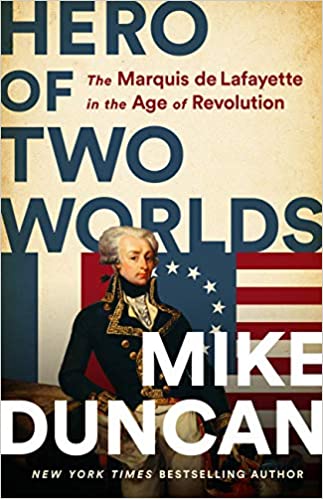What do you think?
Rate this book


512 pages, Hardcover
First published August 24, 2021
He [Lafayette] is a tower amid the waters, his foundation is upon a rock, he moves not with the ebb and flow of the stream. The storm may gather, the waters may rise and even dash above his head, or they may subside at his feet... still he stands unmoved. We know his sight and his bearings, and with the fullest confidence we point to where he stood six and fifty years ago. He stands there now. The winds have swept him, the waves have dashed around him, the snows of winter lighted upon him, but still he is there.